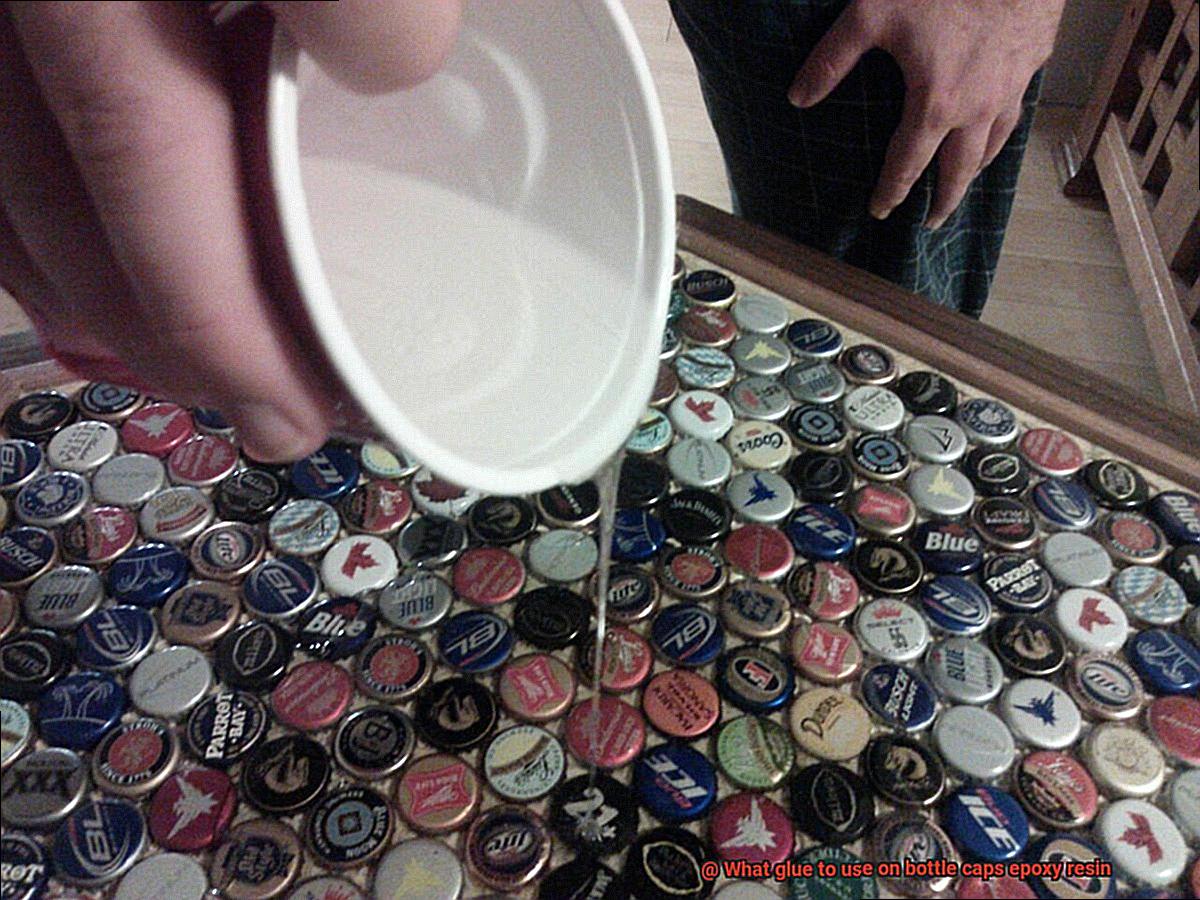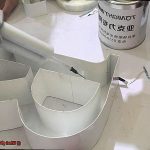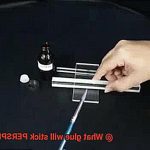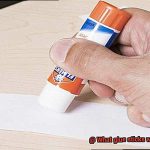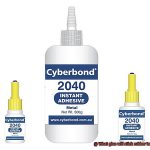Today, we’re about to embark on a journey into the mesmerizing realm of bottle cap art. If you’ve ever wondered how to securely attach those precious bottle caps onto different surfaces, look no further than epoxy resin. This magical glue not only guarantees a rock-solid bond but also adds an irresistible depth, shine, and versatility to your creations.
Whether you’re dreaming up a stunning table centerpiece, eye-catching wall decor, or one-of-a-kind jewelry pieces, epoxy resin is here to transform your bottle caps into bona fide masterpieces. So grab your imagination by the hand and let’s dive headfirst into the boundless world of epoxy resin for bottle cap artistry.
What is Epoxy Resin?
Contents
Step into the mesmerizing world of epoxy resin, where creativity knows no bounds. This versatile adhesive material has captured the imagination of artists, craftsmen, and builders alike, offering endless possibilities for creating unique and stunning pieces. In this article, we will explore the concept of epoxy resin in detail, unraveling its properties, advantages, and wide range of applications.
What is Epoxy Resin?
Epoxy resin is a remarkable thermosetting polymer composed of two components: a resin and a hardener. When these two ingredients are artfully combined, a chemical reaction occurs, transforming them into a solid and resilient material.
Unlike ordinary glues that simply dry out, epoxy resin undergoes a fascinating process called polymerization, resulting in a bond that withstands the test of time.
Properties and Advantages:
Epoxy resin possesses an array of exceptional properties that make it an adhesive of choice for countless applications. Its extraordinary adhesive capabilities allow it to bond diverse materials with ease – from delicate glass to sturdy metals, plastics, and even wood. This versatility opens up a world of creative opportunities for crafters and artisans.
Moreover, cured epoxy resin exhibits remarkable strength and durability, making it suitable for projects that require long-lasting bonds capable of withstanding heavy loads and vibrations. What’s more, its resistance to moisture, heat, and chemicals ensures that your creations remain intact even in challenging environments.
Applications and Uses:
The potential uses for epoxy resin are as diverse as the imaginations of those who employ it. Craft enthusiasts have discovered its magic in sealing and protecting bottle caps in their projects. The crystal-clear finish adds a touch of elegance while securely fastening the bottle caps in place.
To adhere resin-coated bottle caps onto epoxy resin surfaces, there are several options available. Two-part epoxy adhesives are a popular choice, providing a strong and transparent bond that ensures the longevity of your creations. Alternatively, cyanoacrylate glue, commonly known as super glue, offers a quick bond but may not be as resistant to long-term exposure or moisture as epoxy adhesive. Choose wisely based on the specific requirements of your project.
Conclusion:
Epoxy resin is a captivating adhesive material that unlocks a world of possibilities for crafters, artists, and builders. Its ability to create strong bonds between various materials, coupled with its durability and resistance to environmental factors, makes it an indispensable tool in countless applications. Whether you’re embarking on a bottle cap craft project or working on an industrial construction endeavor, understanding the properties and advantages of epoxy resin will empower you to bring your visions to life in a way that is both striking and enduring.
What is the Best Glue for Bottle Caps and Epoxy Resin?
In this blog post, we will explore different types of glues and help you decide which one is best suited for your project.
One popular choice for bonding bottle caps and epoxy resin is cyanoacrylate glue, also known as super glue. This adhesive is renowned for its quick-drying properties and strong bond strength. Just a few drops of super glue securely attach your bottle caps to your epoxy resin project in no time. Remember to clean the surfaces thoroughly before applying the glue.
If you want a more durable and long-lasting bond, consider two-part epoxy adhesive. This glue consists of a resin and a hardener that need to be mixed together in specific ratios. Once mixed, the epoxy adhesive provides excellent bonding strength and is resistant to water, chemicals, and heat. It’s perfect for projects that require added durability and can withstand harsh conditions.
For those wanting to take their bottle cap projects to the next level, specialized plastic bonding adhesives are worth considering. These glues are specifically formulated to provide excellent adhesion on various types of plastics, including those used in bottle caps. They offer a stronger bond compared to general-purpose glues and ensure that your bottle caps stay securely attached to your epoxy resin masterpiece.
When choosing the best glue for your project, consider the intended application. If flexibility or exposure to high temperatures or moisture is a concern, select an adhesive that meets those specific requirements. Read product labels and do thorough research to find the perfect glue for your needs.
Two-Part Epoxy Adhesive
Enter the world of two-part epoxy adhesive – the superhero of glues. It’s tough, durable, and can withstand anything you throw at it.
So how does this magical adhesive work? It’s a two-step process. You’ve got your resin and your hardener. When they come together, they create a chemical reaction that forms an unbreakable bond. It’s a match made in adhesive heaven.
But why choose two-part epoxy adhesive over other glues? Simple – it’s as strong as nails. This stuff can handle moisture, heat, and even chemicals. Whether your bottle cap masterpiece is destined for the bathroom or the scorching sun, two-part epoxy adhesive has got your back.
Before you start slathering this adhesive on your bottle caps and epoxy resin, cleanliness is key. Make sure those surfaces are squeaky clean – no dirt, dust, or grease allowed. This ensures a bond that can stand the test of time.
Don’t forget to follow the instructions like your life depends on it. Mixing ratios and application techniques are crucial for a bond that won’t let you down. And be patient – let that adhesive cure for the recommended time before showing off your masterpiece.
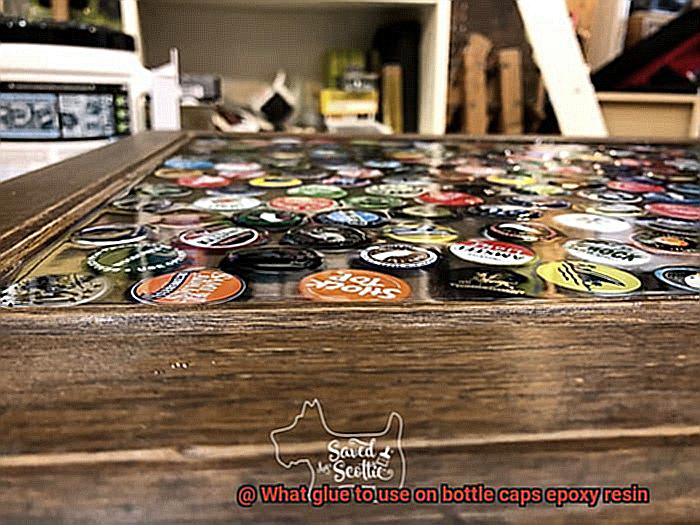
Now, if you’re wondering which brands to trust with your bottle cap dreams, look no further than Loctite Epoxy Five Minute Instant Mix and Devcon 2 Ton Epoxy. These bad boys are reliable and effective in all bonding applications.
Two-part epoxy adhesive isn’t just for bottle caps and epoxy resin. It’s versatile – perfect for metal, plastic, and even general repairs. So let your imagination run wild.
Cyanoacrylate Glue (Super Glue)
Enter the captivating world of bottle cap crafts, where creativity knows no bounds. Whether you’re a seasoned DIY enthusiast or just starting out, one thing’s for certain – you need a glue that can handle the job. That’s where cyanoacrylate glue, better known as super glue, comes to the rescue. In this ultimate guide, we’ll explore the remarkable properties and applications of this adhesive powerhouse, specifically for attaching bottle caps to epoxy resin surfaces. So grab your favorite bottle caps and let’s dive into the extraordinary world of super glue.
Advantages of using Super Glue:
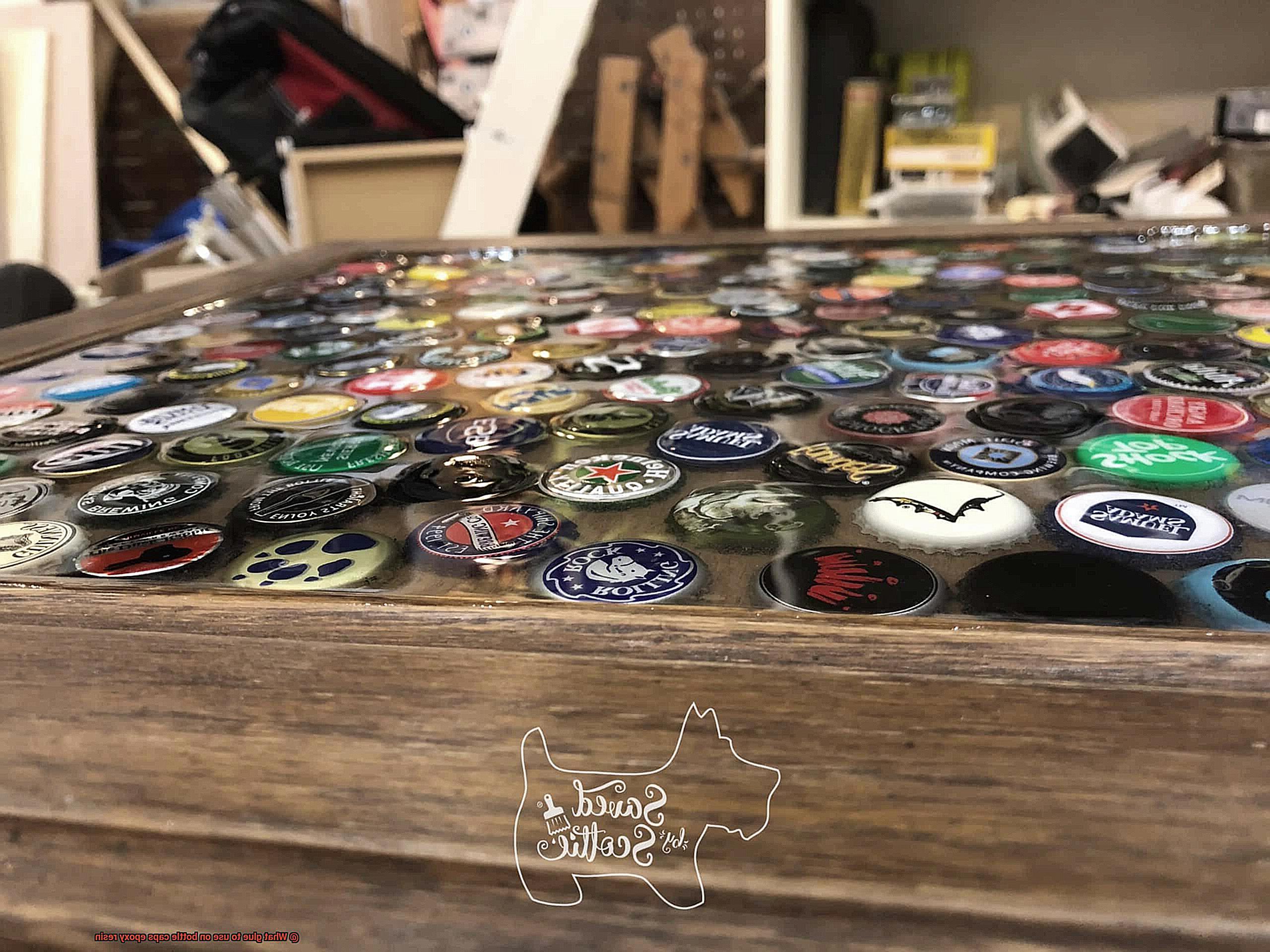
- Versatile Bonding: Super glue is the superhero among adhesives, fearlessly bonding different materials together. Whether your bottle caps are made of plastic, metal, glass, or wood, this glue can tackle them all with unwavering strength.
- Lightning-Fast Drying: In our fast-paced world, time is a precious commodity. Super glue understands this urgency and acts accordingly. While other glues take hours or even days to dry, super glue sets in seconds, allowing you to swiftly move on with your project without wasting a moment.
Considerations for Successful Gluing:
- Surface Preparation: The secret to a secure bond lies in cleanliness. Before applying super glue, ensure both the bottle cap and epoxy resin surface are thoroughly cleaned and free from any dirt, dust, or oils. A quick wipe-down with rubbing alcohol will work wonders.
- Minimal Application: In the realm of super glue, less is truly more. Apply a small amount onto one of the surfaces you wish to bond together. Excessive glue can lead to unsightly drips and overflow, so exercise caution and use it sparingly to avoid any sticky situations.
- Press and Hold: To forge an unbreakable bond, press the bottle cap firmly onto the epoxy resin surface and hold it in place for a few heart-pounding seconds. This ensures that the glue sets properly, guaranteeing a secure and long-lasting attachment.
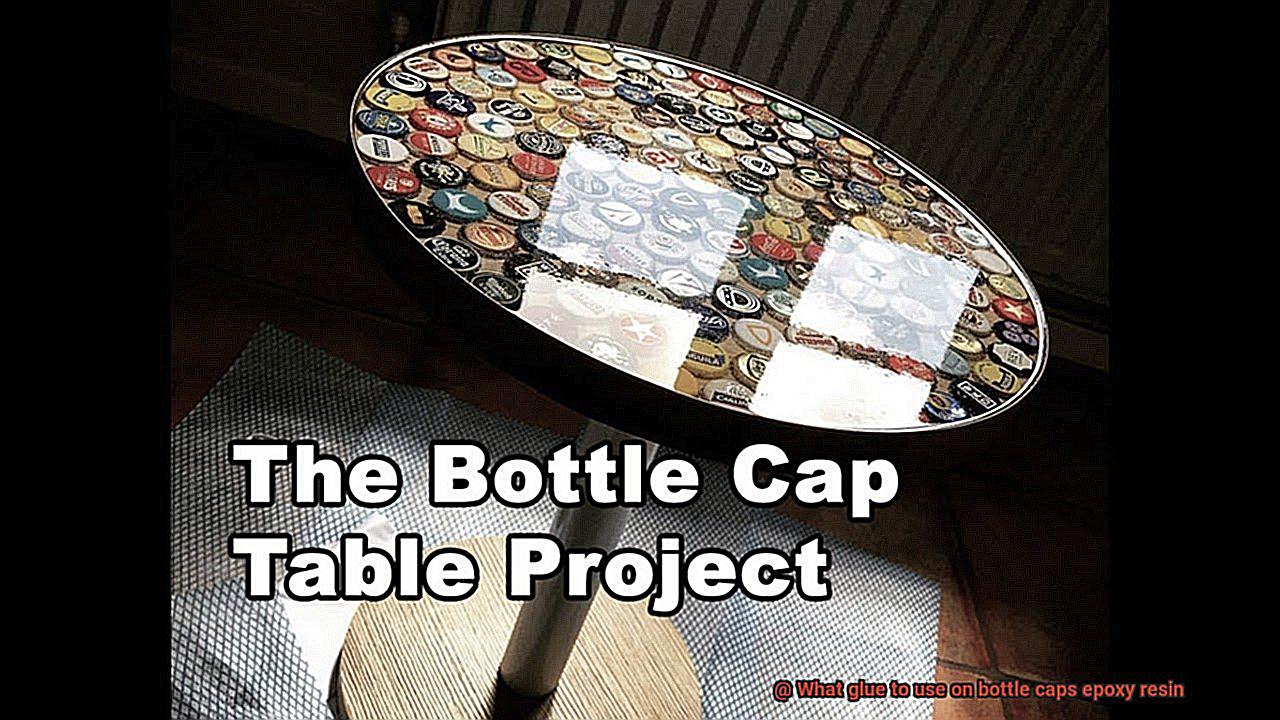
Special Instructions and Precautions:
While super glue possesses formidable bonding capabilities, it’s important to note that certain variants are tailored to specific conditions. If your glued bottle caps will encounter extreme temperatures or water exposure, opt for the waterproof or heat-resistant versions of super glue. These specialized variants provide enhanced durability and unwavering resistance.
Specialized Adhesives for Metal and Plastic Surfaces
Specialized adhesives for metal and plastic surfaces are essential for creating durable and long-lasting projects, especially when it comes to bonding bottle caps made of epoxy resin. With a wide range of options available, it can be challenging to determine the most suitable adhesive for your needs.
When it comes to metal surfaces, epoxy-based adhesives are a popular choice. These adhesives are known for their exceptional strength and durability, making them perfect for applications that require a strong bond. Composed of two components – a resin and a hardener – epoxy adhesives must be mixed before application. Once applied, they form a robust bond capable of withstanding harsh environmental conditions and temperature fluctuations.
For smaller areas or thin metal components, cyanoacrylate glue, or super glue, is another option. This adhesive cures quickly and forms an instant bond, making it ideal for immediate bonding needs. However, it may not provide the same strength as epoxy adhesives when working with larger or heavier bottle caps.
Bonding bottle caps made of epoxy resin to plastic surfaces presents its own challenges due to the lower surface energy of plastics. Polyurethane-based adhesives are an excellent choice for plastic surfaces as they offer excellent adhesion to a wide range of plastics, including epoxy resin. These adhesives provide good flexibility and resistance to impact and environmental factors.
Acrylic-based adhesives are another option for bonding plastic surfaces. They have the ability to bond various plastics, including epoxy resin, with outstanding strength and durability. Acrylic-based adhesives are often used in applications that require transparency or optical clarity, as they have low levels of yellowing over time.
When selecting an adhesive for bonding bottle caps made of epoxy resin to metal or plastic surfaces, consider factors such as the size and weight of the bottle caps, the intended use of the bonded item, and the environmental conditions it will encounter. Consulting adhesive manufacturers or industry experts can provide valuable guidance in choosing the most appropriate adhesive for your specific application.
Cleaning the Surfaces Before Applying Glue
Achieving a strong and enduring bond between epoxy resin bottle caps and glue requires meticulous surface cleaning. In this comprehensive guide, we will walk you through the essential steps to ensure your surfaces are pristine and ready for adhesive application.
To begin, remove any visible debris by gently wiping the surfaces with a clean, dry cloth. This initial sweep eliminates loose particles that could undermine the adhesion process.
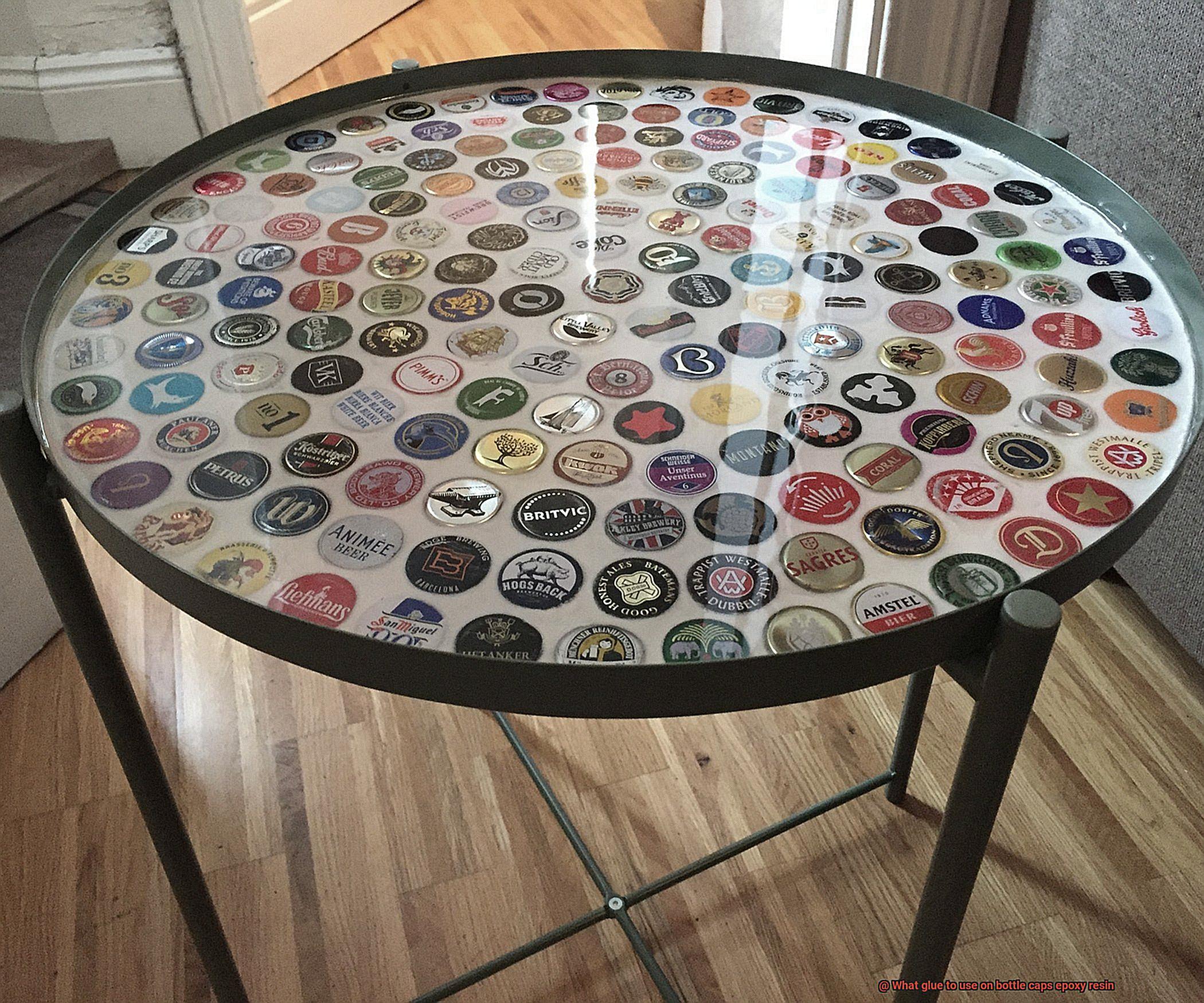
Next, delve deeper into the cleaning process by creating a solution of mild detergent or dish soap mixed with water. Apply this concoction to a soft sponge or cloth and gently scrub the bottle caps. Pay extra attention to particularly dirty or greasy areas, ensuring every nook and cranny is thoroughly cleansed.
After scrubbing, rinse the caps with clean water to remove any lingering soap residue. This step is vital as leftover soap can compromise the bonding process.
In the event of stubborn stains or greasy residues that resist detergent’s charms, unleash the power of isopropyl alcohol or acetone. These solvents effectively dissolve oils and residues without harming the epoxy resin. However, exercise caution by testing these solvents on a small, inconspicuous area first to avoid unsightly discoloration or damage.
Once the cleaning battle is won, allow the surfaces to air dry completely before proceeding. Moisture can wreak havoc on adhesive strength, so be patient and let nature work its drying magic. Alternatively, employ a clean, dry cloth to expedite the process.
Remember that different adhesives may dictate slightly varying cleaning procedures. Always consult the manufacturer’s instructions for precise guidance on cleaning and surface preparation before applying glue to epoxy resin bottle caps.
Testing the Adhesive Before Application
Imagine this: you’ve poured your heart and soul into creating the perfect bottle cap jewelry or keychain, only to have it fall apart because the adhesive didn’t hold up. Don’t let this be your story. Testing the adhesive before application is a crucial step in ensuring a strong and durable bond between bottle caps and epoxy resin. In this blog post, we’ll guide you through the necessary steps to test adhesive compatibility and strength, empowering you to create crafts with confidence.
Step 1: Cleanse and Prepare Surfaces
Before diving into the adhesive testing process, it’s vital to cleanse both the bottle cap and epoxy resin surfaces. Grab a clean cloth, gentle detergent, and water, and scrub away any dirt, dust, or oils that could hinder adhesion. Remember, cleanliness is key to establishing a solid foundation for your adhesive bond.
Step 2: Apply a Small Amount of Adhesive
Now that your surfaces are pristine, it’s time to put that adhesive to the test. Start by applying a small amount of glue onto one of the surfaces. Remember, less is more in this case. We want to avoid excess glue spreading out and causing a mess.
Step 3: Press Surfaces Together
Aligning the bottle cap and epoxy resin surface carefully, press them together with gentle yet firm pressure. This step ensures proper contact between the adhesive and both surfaces. Take a moment to appreciate the union you’ve created.
Step 4: Allow Time for Curing
Patience is a virtue in the world of adhesives. Follow the manufacturer’s instructions regarding curing time. This may entail waiting for several hours or even days for the adhesive to reach its optimal strength and durability. Stay strong; it’ll be worth it.
Step 5: Test the Bond
Finally, it’s time to put your adhesive to the ultimate test. Apply some force or pressure to the bonded area, simulating the wear and tear your craft may experience in its lifetime. Does the bond hold up well without any signs of detachment or weakening? If so, congratulations. You’ve found a reliable adhesive for your bottle caps and epoxy resin.
Also Read: How To Glue Acrylic Together? – Glue Things
Conclusion
In conclusion, there are several options available for gluing bottle caps onto epoxy resin. One popular choice is two-part epoxy adhesive, known for its strong and transparent bond that ensures the longevity of your creations. This durable adhesive is resistant to moisture, heat, and chemicals, making it perfect for projects that require long-lasting bonds capable of withstanding heavy loads and vibrations.
If you’re in need of quick bonding, cyanoacrylate glue, also known as super glue, is a great option. This adhesive dries quickly and forms an instant bond. While it may not be as resistant to long-term exposure or moisture as epoxy adhesive, it’s ideal for those who need a fast solution.
For specialized applications such as bonding plastic or metal surfaces, there are adhesives specifically formulated for these materials. Epoxy-based adhesives are exceptional for metal surfaces due to their strength and durability. If you’re working with plastics including epoxy resin, polyurethane-based adhesives offer excellent adhesion.
Before applying any glue, make sure to thoroughly clean the surfaces. Use a mixture of mild detergent or dish soap with water to remove dirt and grease from both the bottle caps and epoxy resin surface. This will ensure a strong bond between the two materials.
Lastly, always test the adhesive before applying it fully. Apply a small amount onto one surface, press the surfaces together firmly, and allow time for curing. Test the bond by applying force or pressure to see if it holds up without any signs of detachment or weakening.

